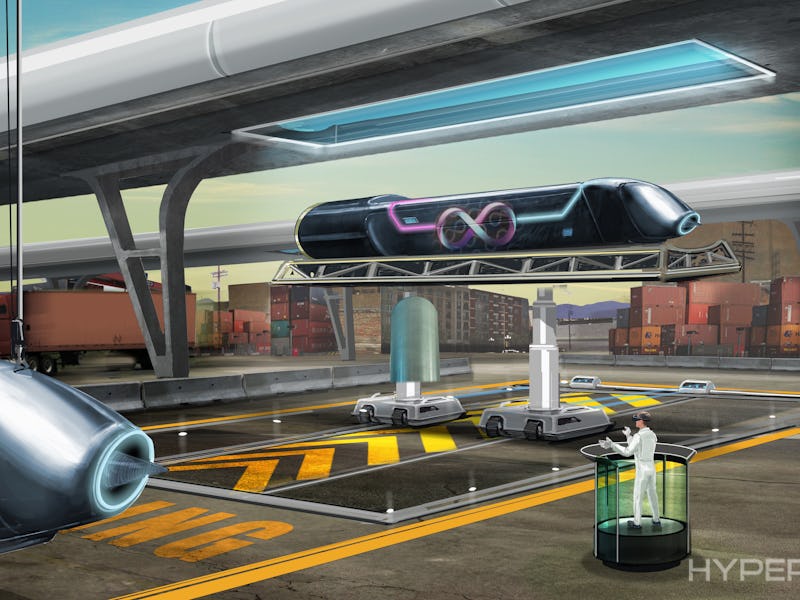LA-Based Hyperloop Technologies Will Roll the Dice on Las Vegas Test Track
And others will be built in Los Angeles and most likely Texas.

A team hoping to make Hyperloop a reality is going to gamble with its new ideas in the right city.
LA-based Hyperloop Technologies is putting to action Elon Musk’s vision of a high-speed tube train — powered by air pressure and conduction — and has announced plans to test the technology at Apex Industrial park in North Las Vegas in 2016.
“This will be over two miles of tube with a controlled environment and inside that tube we will levitate a pod and accelerate it to over 700 mph. We aim to achieve this in Q4 2016,” the company announced on Monday.
Hyperloop Technologies takes its name from Elon Musk’s heralded 2013 white paper that lays out the idea of how to shoot pods through a tube, pushed by the power of many, many air compressors. It’s an idea futurists (or just all of us) hope could one day traverse continents like an international New York City subway system.
LA-based Hyperloop Technologies is setting up a test track in the Nevada desert.
As Hyperloop Technologies will try to make ground transportation history in North Las Vegas, other nascent Hyperloop projects are also growing and plan to test their own versions in the coming year: A Hyperloop student design contest, spearheaded by Musk’s company SpaceX, will see its top prototypes unveiled in January at Texas A&M University, and SpaceX is primed to demo the student designs outside its California headquarters next summer.
SpaceX revealed last month that it had received more than 125 student submissions for the contest, while another company, Hyperloop Transportation Technologies, also has plans to test out a Hyperloop in the California desert, albeit in a few years.
While Hyperloop is looked at as potentially revolutionary, its mechanical basis — outlined in Musk’s 2013 white paper — has come in for some criticism, a few barbs of which have been flung by civil engineers who argue the whole thing isn’t even feasible.
The lofty goal of many companies involved in the Hyperloop race is to achieve functionality by 2020.